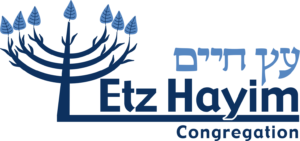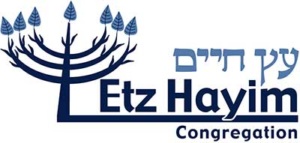The Responsibility of a Religious Community
By Rav Natan
On Rosh Hashanah we celebrate the birthday of our world. Every year I try to think: what would I say to the world today, on its birthday?
I see the world as a balanced living organism, experienced yet still capable of being young and creative, powerful but not all-powerful, wise but sometimes struggling to adapt to new realities.
Who am I, a young human being, to say something to a magnificent divine creation?
This year, instead of SAYING something to the world, I decided that I wanted to say something to all of us, so we can DO something for the world.
What brings us all here tonight is the fact that we are part of a religious community.
The question I’m asking myself this year is about our responsibility as a faith community. As Jews, we believe to have a significant responsibility about our society and our world. At the same time, we face significant challenges for being a part of religious group.
Religion is being used as a tool to empower extremist causes, ideologies based on hate and destruction. Multiple studies are showing a rise of extremist religious groups of all faiths.
If you look into our history as human society, religion has been one of the major players in creating many of the problems we are facing, whether directly or as a reason for people’s decisions about war, destruction, fake news, attacks against science and more.
In short, religion is part of the problem.
Can religion be part of the solution?
As a big fan of trilogies, we will be exploring together three different issues tonight, tomorrow morning and the next day, trying to understand how religion can be part of the solution and our individual and communal responsibility facing these challenges.
Tonight, we will focus on the challenges of religious extremism and our responsibility as pluralistic Jews, who are committed to a religious perspective that can only be a force for good, love, peace, compassion, and justice.
Many religions are focused on answering existential questions of “why”. Maybe the most famous of all are: “Why bad things happen to good people?” or “Why was the World created?” Unfortunately, many times the answer to these questions is an oppressive theology of good vs. evil, or “us vs. them”.
I am not an expert in religions other than Judaism and therefore I will not focus on their challenges. We have enough challenges of our own and a significant responsibility to do something about them.
A religion that answers to the real issues of our time must be humble enough to bring down the arrogance of knowing it all and be pluralistic by default. We must acknowledge our lack of knowledge and understanding, and if adventuring towards answering the existential questions of “why”, openly allow the possibility of being partially or completely wrong.
I believe that religious people in general, Jews in particular, should focus their religious efforts into developing meaning in time, finding purpose in life, cultivating relationships, creating communities, sanctifying particular moments in time, and acting morally and ethically towards a more equal and just society for all, despite their origins, backgrounds, religion, race or ethnicity.
The particular element of religion – we do what we do because we are Jewish – can only exist in a context of universal respect, partnership, and support of all, allowing our diversity to be what makes us stronger. We can learn from those who are different than us, rather than imposing our truths into other people’s lives.
Science does not contradict religion, on the contrary, religion has always been learning and adapting its knowledge based on human and natural science.
We, as Jews, have been a direct target and oppressed by multiple religious groups over millennia. As Jews, we are not exempt from being oppressors either. Covering our eyes to the problems we face within the Jewish community, is a common mistake. We too have our own extremist groups and pretending like they don’t exist is not be fair and does not help us move forward. Some of these groups are now represented in the Knesset, the Israeli Parliament, and this should be taken seriously.
The key question for discussion is finding the source for these extremist religious perspectives. Are religious extremist people just following their religion and we just don’t get it? Is there any basis for their religious positions? Is it an ancient issue or just a modern challenge?
Before we start answering some of these questions, I need to share with you my own religious perspective and how I am approaching this issue.
All religions evolve. The creation of each religion is a new development of its own reality and context, responding to existential questions of their time. This perspective already separates us from extremist religious perspectives. They understand their reading of ancient texts as eternal truth – no criticism is allowed.
How can we approach the same ancient texts as a source for good in the world? Are we distorting religion when offering a different reading from what is believed by some to be its original meaning?
Our tradition offers a significant number of challenging texts to our modern selves. But this is not new to our tradition either. In the Torah itself we find contradictions within the text. In the rabbinic period, about 2000 years ago, reinterpreting the Bible to their new reality became the core project for generations of Jews.
The Torah reading selected by our rabbis for the mornings of Rosh Hashanah is the birth and the almost sacrifice of Itzhak, our second patriarch. We are challenged today to interact, praise, express gratitude and pray before the same God who commanded Avraham to sacrifice his son Itzhak.
There are many examples of challenging texts in our libraries that make us uncomfortable, disgusted. A normal and legitimate response towards these texts is to just distance ourselves from religion all together.
Why should I be part of an oppressive system that attacks me and the people I love? How can I align myself with a religion that empowers extreme perspectives that are harmful and destructive to our society? Does God really hate me and all the people I love?
How can we claim that Judaism is not a platform for bigotry, racism, xenophobia, war, and destruction? This is our challenge today.
While religious texts are representative of their own time and context, our interpretations of them are bound to our own time and context.
I believe that God does not command us to do things that we understand to be immoral.
The central Torah reading of Rosh Hashanah, the almost sacrifice of Itzhak, was not necessarily understood by Avraham to be immoral. We know that child sacrifice was not uncommon in the ancient past. The final scene of that story, when God provides an animal to be sacrificed instead of Itzhak, is exactly the moment when an understanding of morality has changed. The fact that Itzhak’s life is never offered to God comes to show that the Jews who wrote that text wanted to teach us that child sacrifice is NOT part of our morality. The need for this story is the proof that it was a unique religious perspective, not necessarily shared by others, but a new moral understanding, creating a new religious reality.
While we share many values with our ancestor Avraham, that were natural to him, like welcoming the stranger and fighting for the righteous people of Sodom and Gomorra, we see in our texts how his own moral sense developed with time.
Yaakov used to create monuments of stone to express gratitude to God in his journeys. The Torah (Devarim 16:22) condemns this practice: “Do not set up a stone monument, which Adonai your God hates”. Rashi sees the contradiction here and explains: “Even though [the stone monument] was beloved to [God] in the days of the patriarchs, now God hates it, since [the Canaanites] turned it into an idolatrous practice.”
Not only Avraham can learn and change his ways. God also does that in our tradition.
The meaning of divine values like Justice and Peace evolves with time. When we say that God is Eternal, it does not mean that our understating of the divine values cannot change, on the contrary! – it means that the divine values are meant to accompany us in our journeys and be improved by our understanding of the divine morality.
Whenever we face challenging texts of our own tradition that argue for something we believe to be immoral we must take it seriously.
We don’t reject them immediately, we study them. If we try to hide them or pretend like they don’t exist, we are allowing extremist people to have a monopoly over these ideas. We must confront them honestly, trying to learn anything possible, without giving up our moral standards.
As we have seen, Judaism is not a religion centered around dogmatic faith nor a religion frozen in time. Judaism has always developed through time and space, learning, and incorporating outside ideas to its core.
Judaism has principles and values that are the reason for our existence: peace, justice, love, compassion. Anything done in the name of Judaism that deviates from its core, must be questioned, investigated, and ultimately, changed. It has always been this way; this is not a modern idea.
The core of being Jewish is not the rituals nor our faith. The core of being Jewish is in the manifestation of our values and principles, no matter the circumstance.
The famous answer: “but it is written in the Torah”, to make a point in a modern debate, was never the end of a Jewish conversation, rather, it was always an opportunity to amplify our conversation and bring God into it.
The Torah never was and never will be the end of our conversation. The Torah is our source of a divine manifestation to our ancestors, laying out values and practices that they found meaningful and took to heart. It is our challenge as modern Jews to read these texts in our own time and context, allowing a plurality of meaningful answers that can coexist with one another.
Believing in a God capable of changing while being Eternal doesn’t make us less religious, it just prevents us from becoming blind by our own self-righteousness. Having faith in the divine as an ongoing relationship that shapes one another is the ultimate religious devotion. One can only change and allow oneself to be changed if there is a significant relationship between human and divine.
We have a covenant with God. Just as a married couple, siblings, or two best friends, we struggle together. We create space for dialogue. We listen to each other.
We need religion alive as a force for good. When two people are together, their potential expands as they join forces to pursue common goals together.
I believe that God is in our side, and we are on God’s side. We are working together to make this world a better place.
The way to combat extremist religious perspectives is to embrace our pluralistic tradition.
May we enter this new year with our hearts and ears open to multiple perspectives of the divine truth.
May we find wisdom in our dear Torah, making it meaningful to our lives today.
May we celebrate our diversity, making us wiser and stronger, by learning from each other.
Shanah Tovah


